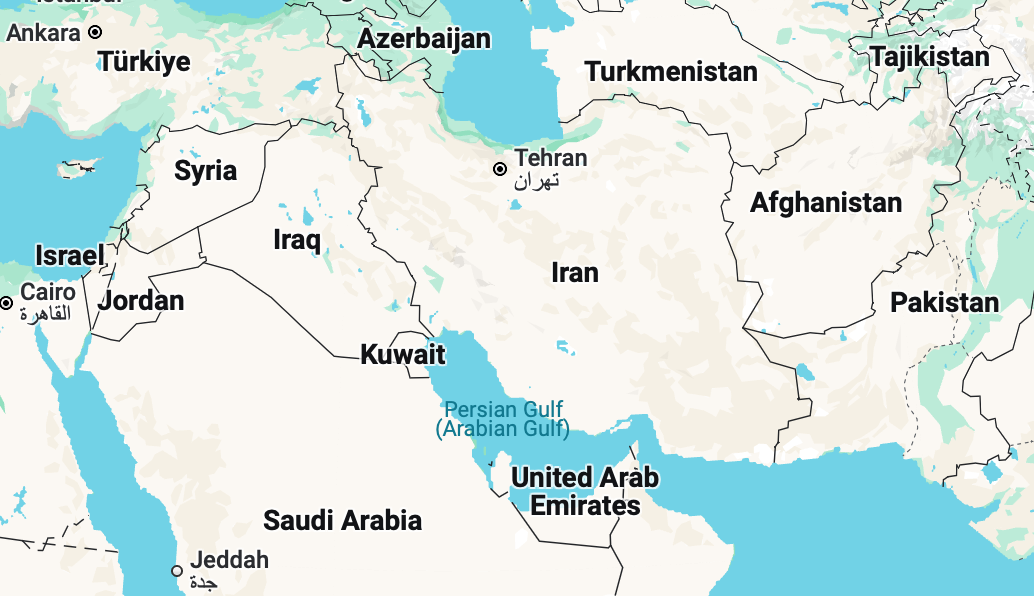Thousands of Tehran residents have been pouring out of the capital since the escalation of the conflict between Israel and Iran.
Some eyewitnesses reported massive congestion on the exit roads of the capital.
At petrol stations, queues stretched for kilometres in places in Monday, while other streets were eerily quiet in the city of more than 15 million inhabitants.
On Saturday, Defence Minister Israel Katz issued a stark warning to Iran and its Supreme Leader Ayatollah Ali Khamenei, saying that Tehran will burn if Iranian missile attacks on Israeli civilian areas continue.
Katz wrote on X on Monday that residents of Tehran will pay the price and soon for attacks that killed civilians in Israel.
Many people packed only the bare essentials and fled to the east of the country, which is still considered comparatively safe.
In the west, where many military installations are located on the border, the full force of the Israeli air force has been in evidence since Friday, with an onslaught of strikes.
Northern areas on the Caspian Sea, which are generally popular with holidaymakers, have become a place of refuge.
Zadshad, a 35-year-old teacher, was one of those who fled with his family to Rasht, a town near the sea.
The journey that normally takes four hours took them more than a day on the choked roads leading away from the capital.
“Now that we’ve arrived, it’s no better. The shops are overcrowded and there is a shortage of food,’’ he told dpa.
Prices for accommodation in such areas shot up after the start of the hostilities.
Zadshad feared a war away from home with all the additional strains: “Living in these conditions is really hard”.
Another family making their way to Turkey with their son also spoke of the high cost of finding safety.
“I borrowed 5,000 euros (5,770 dollars) from a friend so that we can travel to Istanbul to see our daughter in the hope that the situation will calm down a bit,’’ said the father.
A man is a 60-year-old media worker.
“At the moment, we’re waiting until the streets are a little emptier and are thinking about the best border crossing to get to Turkey.’’
Not everyone can leave the country.
One official from Tehran wanted to drive towards Azerbaijan on the advice of his brother from the U.S., setting off with his 82-year-old mother on Sunday.
“But because of the heavy traffic, the petrol shortage, and my mother’s poor health, we had to turn back.
“Now we are waiting for better conditions to try again,’’ he said.
Israel claims control of Tehran’s skies as deaths mount on both sides
Meanwhile, the Israeli military said on Monday it had gained control of airspace over Tehran and destroyed a third of Iran’s surface-to-surface missile launch pads.
The casualties mounted on the fourth day of the conflict between the two regional powers.
Military spokesperson Effie Defrin said that more than 50 Israeli fighter jets and precision missiles were involved in the strikes overnight.
This was targeted and destroyed over 120 Iranian launch pads.
Missile depots and production facilities were also hit, he said.
According to Defrin, Iran launched 65 missiles and dozens of drones at Israel overnight apparently only about half of what Iran’s military had intended to fire.
“We thwarted a significant portion of the planned attack.
“We can now say that we have achieved full air superiority in the skies over Tehran,’’ he said.
He added that Israeli forces were continuing to target units actively attempting to launch missiles or engage Israeli aircraft.
Since Friday, Israel has carried out widespread strikes on Iranian territory, including nuclear sites, defence installations, urban targets, and oil and gas infrastructure.
According to the military, the attacks have also killed several high-ranking officers and nuclear scientists.
Defrin reiterated that the operation’s central aim is to prevent Iran from developing nuclear weapons and long-range missiles.
He said strikes would now expand further east into Iran.
“We still have difficult days ahead,but we will get through them together and emerge victorious,” he said.
Iranian strikes kill eight
Israel’s Defence Minister Israel Katz on Monday promised harsh retaliation against Tehran following a fresh wave of deadly Iranian rocket attacks on Israeli cities overnight.
Iran had carried out targeted shots at the civilian home front in Israel, he said, adding that “residents of Tehran will pay the price and soon.’’
According to emergency services, eight people were killed and 92 injured in the overnight attacks.
The total number of fatalities in Israel since Friday now stands at 23.
Emergency officials reported four strikes in the Tel Aviv area.
U.S. Ambassador to Israel Mike Huckabee said the embassy’s branch office in Tel Aviv sustained “minor damage from concussions’’ caused by a nearby impact, but no injuries were reported.
Iran casualties mount
At least 224 people have been killed in Iran since the Israeli attacks began last week, the Health Ministry said.
Some 1,277 had been injured, a ministry official wrote on X on Sunday. More than 90 per cent of the casualties were civilians, the spokesman said.
Iranian media reported that an Israeli strike hit a hospital in the western city of Kermanshah, with a video from the Shargh newspaper showing a damaged intensive care unit and a blood-stained bed.
An Israeli army spokesman said the reports are under investigation.
Under international humanitarian law, hospitals are protected civilian sites and may only be targeted if clearly used for military purposes.

